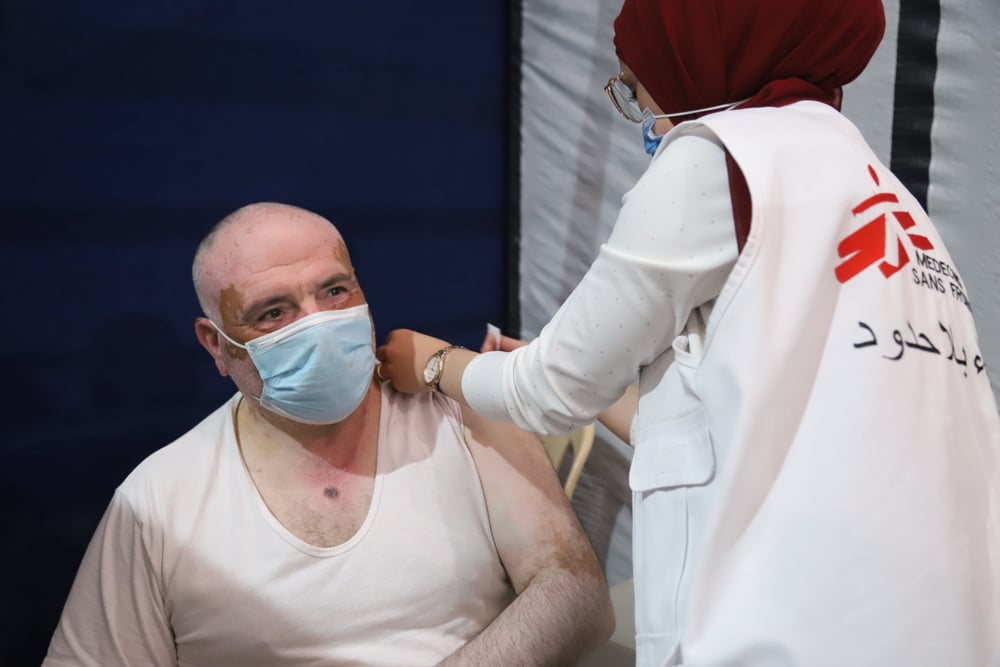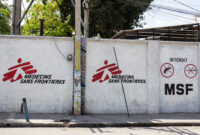Why MSF wants Canada to demand a better return on its medical R&D spending
Doctors Without Borders/Médecins Sans Frontières (MSF) is calling on Canada’s government to attach simple conditions to the money it spends each year on medical research and development (R&D), to ensure that its public funding is used to increase returns on public health rather than boost private profits for the pharmaceutical sector. Why does that matter to an international emergency medical organization like MSF? Read the following Q&A to find out.
Why does MSF care about government funding for medical R&D in Canada?
Every year, the government of Canada spends millions of dollars on medical research and development (R&D). This is an essential investment in Canadian and global public health. Without this kind of public funding from Canada and other governments around the world, many urgently needed vaccines and other medicines would simply not exist, because for-profit pharmaceutical companies do not consider them lucrative enough to be worth developing themselves.
This is particularly true for diseases and other public health risks that mostly affect people in lower-income countries, including many of the places where MSF works. But the same is also true for any disease or other public health risk in Canada that doesn’t guarantee a sizeable profit-making opportunity.
If it were left up to pharmaceutical companies alone, without government funding for the necessary R&D, many lifesaving medical innovations – including those needed by MSF teams responding to global health emergencies every day – would not see the light of day.
But if Canada is already funding medical R&D, what are MSF’s concerns?
Public funding for medical R&D is essential, and Canada has a long history of investing in critical health research. But funding new medicines means little if the people who need them most can’t access them.
Canada spends millions of public dollars in support of medical R&D, but still leaves it to pharmaceutical companies to bring the resulting products to market – and allows them to charge whatever prices they want, even when the patients and health systems most desperate for those medicines can’t afford them.
That means that even when the R&D costs (and financial risks) for lifesaving medicines are paid for by Canada’s government, it is still pharmaceutical companies who decide who has access to those medicines and at what price – often leaving some of the world’s most vulnerable communities cut off from health tools they urgently need.
So what is MSF asking Canada to do?
Canada can take very straightforward steps to ensure the public funding it spends on medical R&D is used to meet public health needs, rather than to subsidize the already-profitable pharmaceutical industry, simply by making any funding that is provided to support medical R&D or manufacturing conditional on the medicines and vaccines that are produced being priced affordably and made globally accessible.

By attaching global access and affordability conditions to the funding it provides, Canada can ensure its public investments in medical R&D will meet public health needs, both in Canada and around the world. MSF is calling on Canada to immediately add those kinds of conditions to its medical R&D spending, so that MSF and other healthcare providers around the world can be assured that new, lifesaving medicines and vaccines will be affordable for us and our patients.
Are pharmaceutical companies who sell medicines that were developed with public funding usually required to make their products more accessible and affordable as a result?
No, but they should be.
The most obvious example is COVID-19. The pandemic has highlighted the remarkable achievements that are possible when governments dedicate considerable resources to R&D. The creation of not just one but multiple effective vaccines for a previously unknown disease in such a short period of time is unprecedented.
But pharmaceutical companies are making billions of dollars from COVID-19 vaccines by prioritizing sales to the world’s most lucrative markets, not to countries who today need vaccines the most — even though many lower-income countries have yet to receive enough vaccine doses for even 10 per cent of their populations. This leaves people in those places exposed to the virus, and the rest of the world at increased risk from variants that will emerge in regions with low vaccination rates.
This dangerous disparity is being allowed to happen despite the fact these companies did not develop these vaccines on their own. Far from it, in fact: without government support, these vaccines would not exist. In some cases, the development of COVID-19 vaccines was publicly funded by as much as 97 per cent.
Unfortunately, despite generous public funding, many of the makers of these vaccines have prioritized private profits over patient access. Governments need to ensure that access to public funds is tied to public access to the medicines and vaccines they help develop – exactly as MSF is asking Canada to do.
If this is a global problem, why is MSF focused on Canada?
MSF is calling on governments around the world to place lives ahead of profits, by demanding that pharmaceutical companies who benefit from public funding for medical R&D be required to make any resulting lifesaving medicines accessible and affordable to those who need them most.
But Canada is particularly important to this conversation. Not only is Canada home to some of the world’s leading health science researchers, but the Canadian government already invests in medical R&D that can make a critical difference in the lives of many of MSF’s patients around the world.
Canada’s National Microbiology Lab in Winnipeg, for example, has discovered potential vaccines for both Marburg virus (an Ebola-like disease) and Lassa hemorrhagic fever, a disease widespread in parts of West Africa. Other Canadian scientists are working on vaccines for conditions like tuberculosis and the parasitic disease schistosomiasis. Vaccines against these diseases could be incredibly important for the people and communities that MSF works with.
Proper funding to get such useful public health tools out the door is a hugely important first step – but ensuring that they are affordable, accessible and available to people where they are needed most is something we should all expect and demand. Medicines shouldn’t be a luxury.
That is why MSF is calling on Canada to take action now, and attach strings to the millions of dollars it spends on medical R&D every year, to ensure MSF’s patients will have access to the medicines and vaccines they need. Not only is it a common-sense way to ensure a public return on public investment, but it will help people both in Canada and around the world access new medicines and vaccines that can save lives, alleviate suffering and protect global public health.
Read more about MSF’s calls for Canada to place lives ahead of profits, and to attach affordability and accessibility conditions to medical R&D funding, by visiting our Lives Over Profits: Canada’s Actions Matter campaign page.
You can also read about the hard lessons learned when one of Canada’s most significant public-health breakthroughs – a successful Ebola vaccine developed at the National Microbiology Lab in the early 2000s – was unavailable to save lives during the world’s biggest outbreak of the disease, because Canada had sold it to a private company who preferred to leave it on a shelf rather than bring it to development. Public funds, Private Failure: Canada’s Ebola Vaccine Could Have Saved More Lives underscores how R&D funding without strings attached still leaves vulnerable communities cut off from urgently needed new medicines.











